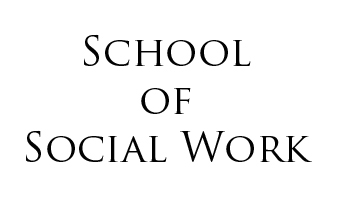FAYETTEVILLE, Ark. — People of color in the United States typically have 15 percent of the net worth of their white counterparts, according to the Insight Center for Community Economic Development.
Two University of Arkansas School of Social Work professors, Kameri Christy-McMullin and Yvette Murphy, will attend a national gathering of experts and researchers at the Ford Foundation in New York City Oct. 29-30 with the goal of developing ways to dramatically increase this percentage.
The Insight Center and the Ford Foundation are co-sponsors of “Closing the Racial Wealth Gap,” and this year’s conference is the fourth of five conferences planned to create and implement strategies to help communities of color build and retain assets and wealth. Participants include academics, researchers, governmental officials, financial institution representatives, policymakers, policy analysts, direct service providers and foundation representatives.
One strategy already in use is the Individual Development Account. Similar to retirement accounts, IDAs are tax sheltered, and a percentage of money deposited in them is matched by governmental agencies and other entities. Low-income families may use the money only on predetermined expenditures that allow them to build wealth, including home purchases, starting or expanding small businesses and postsecondary education and training.
Christy-McMullin and Murphy are considered national leaders in IDA research and are the first researchers in the country to conduct a longitudinal study on the outcomes of IDAs. Additionally, Christy-McMullin was the principal investigator on a project in Arkansas and New Mexico that involved conducting research at one of the sites selected for the first national IDA demonstration project in the United States.
This expertise was central to the Insight Center and Ford Foundation’s decision to invite them out of hundreds of other nominees from around the country.
“To capture it in a nutshell, Drs. Murphy and Christy-McMullin have done innovative research and understand how to change barriers which prevent communities of color from developing and preserving assets,” said Anouk Shambrook, an Insight Center program manager who coordinated the invitation process.
“They are both doing cutting-edge research and understand how race and income intersect with asset policies and programs,” Shambrook said. “They have an understanding of how to change the system, and they have innovative ideas about how to close the racial wealth gap.”
Shambrook pointed out that having two invitees from one institution is unusual but was warranted in this case.
“Our goal was to have one person from one institution but in some cases we made an exception when it seemed like it was important to include two people’s particular expertise,” she explained.
“Being selected to attend this gathering is an honor and an opportunity,” Murphy said. “It’s an honor in the sense that it’s sponsored by the Ford Foundation and Insight Center, which are two very strong entities committed to this stream of work. And it’s an opportunity because we’re being included in a conversation with major players in this area.”
“It’s a huge honor because they’re very selective in who they’re inviting,” Christy-McMullin added. “There were a total of only 175 invitees nationwide, and just a portion of those are from academia.”
Murphy, who attended last year’s conference, said the event is best characterized as a think-tank.
“We come together to talk about issues surrounding the racial wealth gap: various research, practice in the field and trends that are sparking,” she said. “We also put our heads around what strategies can be put in place to close this gap. We’re talking about strategies across the board, including those for research, practice and policy.
“The conference brings players together who wouldn’t normally come together — a broad spectrum of people who not only focused on asset building but also asset building as it pertains to closing the racial wealth gap.”
This conference and line of research present opportunities for Murphy to remedy an inequality that resonates personally with her.
“The literature shows that a racial gap does indeed exist with regard to asset building and wealth, and so as an African American, I see that everyday and just feel a personal need to contribute to research in that direction,” she explained.
The School of Social Work is situated within the J. William Fulbright College of Arts and Sciences.
Contacts
,
